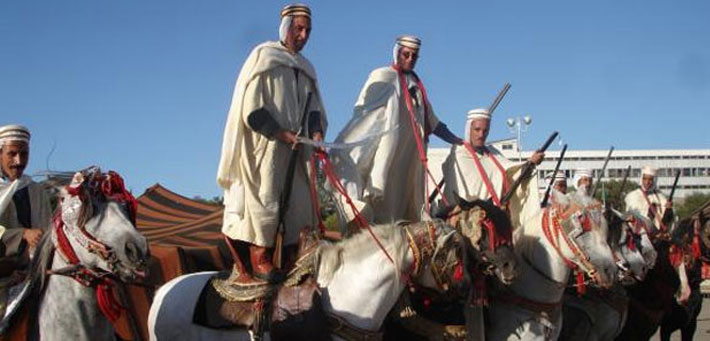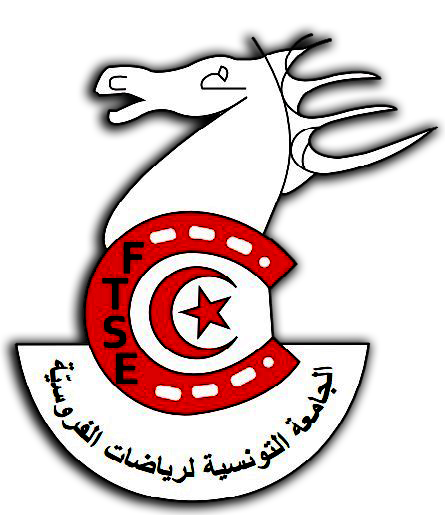Symbolizing warrior virtuosity, the Fantasia ensures the continuity of an authentic military equestrian tradition. Simulating traditional military action from the 19th century, it reproduces the assaults of Arab and Berber military tactics, where a swift retreat follows a sudden attack. Today, the gunpowder charge, or baroud, has replaced the crossbow shot. The training of the horses, Barbs or Arab Barbs, follows specific rules: the rider and his mount must recognize the exact sequence of prepared maneuvers in unison. On a delimited field, teams ranging from two to twenty riders fill the air with the sound of their charges.
To perform these feats, riders must master excellent equestrian technique, as well as possess agility, audacity, and courage. The Fantasia remains one of the most appreciated equestrian displays throughout the Maghreb. In Tunisia, distinctions are made between "le Nchef," corresponding to the full gallop military charge punctuated by baroud shots, and "le Mdaouri," the equestrian figures that the rider imposes on his horse to the beat of popular music with the sound of the Tabla (drum) and Zakra (flute).
